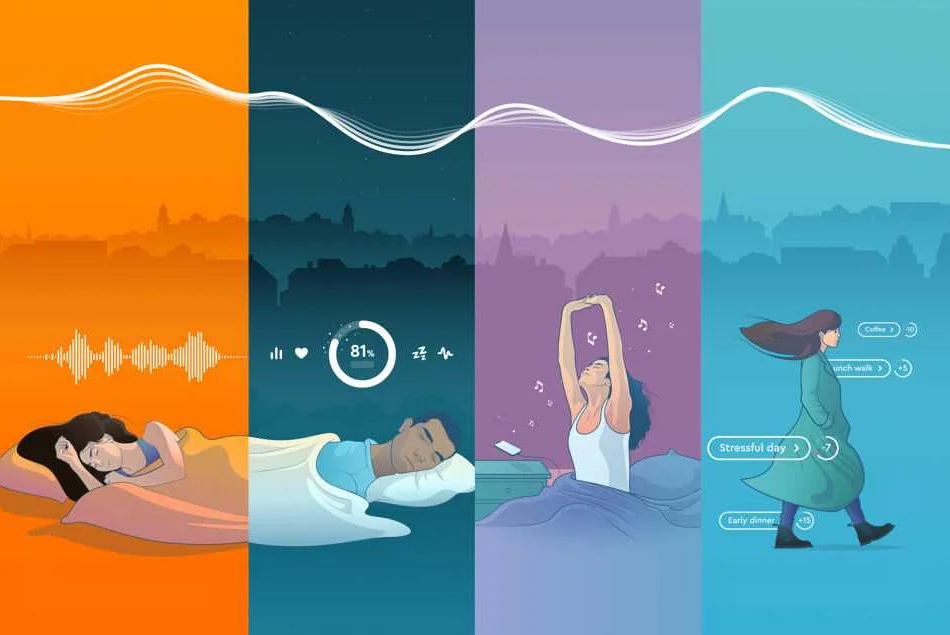How to Fall Asleep Quickly at Night – True and False
Содержимое
Discover the myths and facts about falling asleep quickly at night. Learn effective techniques and debunk common misconceptions to achieve a peaceful night’s sleep.
Getting a good night’s sleep is crucial for our overall health and well-being. Yet, many of us struggle to fall asleep quickly at night. With so much information out there, it can be difficult to separate the truths from the myths when it comes to getting quality sleep. In this article, we will explore some common misconceptions and provide evidence-based tips on how to fall asleep faster.
One common myth is that staying awake in bed can help you fall asleep faster. However, this is far from the truth. Lying in bed awake actually creates a negative association between your bed and sleep, making it harder for you to doze off when you want to. It’s important to establish a bedtime routine that signals to your body and mind that it’s time to sleep. This could involve activities like reading a book, taking a warm bath, or practicing relaxation techniques.
Another myth is that alcohol can help you sleep better. While it may initially make you feel drowsy, alcohol disrupts your sleep cycle and prevents you from getting the deep, restorative sleep you need. It can also lead to more frequent awakenings throughout the night. Instead, opt for a soothing cup of herbal tea or a glass of warm milk, which contain natural compounds that promote relaxation and sleep.
One truth about falling asleep quickly is the importance of creating a sleep-friendly environment. Your bedroom should be cool, dark, and quiet. Consider investing in blackout curtains, earplugs, or a white noise machine if necessary. Additionally, the use of electronic devices such as smartphones and tablets before bed can interfere with your sleep. The blue light emitted by these devices suppresses the production of melatonin, a hormone that regulates sleep. Try disconnecting from screens at least an hour before bedtime to improve your sleep quality.
In conclusion, falling asleep quickly at night is not a matter of luck or chance. By debunking common myths and implementing evidence-based strategies, you can improve your sleep hygiene and enjoy a restful night’s sleep. Remember to establish a bedtime routine, avoid alcohol and electronic devices before bed, and create a sleep-friendly environment in your bedroom. Sweet dreams await!
Importance of a Sleep Routine
Having a consistent sleep routine is crucial for getting a good night’s sleep. It helps regulate your body’s internal clock and trains your brain to recognize when it’s time to rest.
By going to bed and waking up at the same time every day, your body will start to naturally adjust and prepare for sleep. This regularity helps to establish a healthy sleep pattern and ensures that you get the recommended amount of sleep each night.
A sleep routine can also include relaxation techniques, such as reading a book, taking a warm bath, or practicing meditation before bed. These activities can help calm the mind and signal to the body that it’s time to unwind and prepare for sleep.
Additionally, avoiding stimulating activities and electronic devices in the evening can contribute to a better sleep routine. The blue light emitted by screens can interfere with the production of melatonin, a hormone that regulates sleep, making it harder to fall asleep quickly.
Establishing a sleep routine is especially important for individuals who struggle with insomnia or have difficulty falling asleep. Following a consistent routine can help improve their sleep quality and reduce the time it takes to fall asleep.
Overall, a sleep routine plays a vital role in maintaining healthy sleep habits. By prioritizing and committing to a consistent routine, you can improve your sleep quality, enhance your overall well-being, and wake up feeling refreshed and energized each morning.
Debunking the Myth of Counting Sheep
One of the most popular and widely-known methods for falling asleep quickly is counting sheep. According to this age-old technique, people imagine a flock of sheep jumping over a fence one by one, with the repetitive and calming nature of the visualization helping them drift off to sleep.
However, despite its popularity, there is little scientific evidence to support the effectiveness of counting sheep as a sleep aid. In fact, research suggests that this method may even be counterproductive for some individuals.
One reason why counting sheep may not be as effective as believed is that it requires mental effort. When we are struggling to fall asleep, our minds tend to be active and racing with thoughts. Focusing on counting sheep might actually keep our minds engaged and hinder the relaxation necessary for sleep.
Moreover, the repetitive nature of counting sheep can sometimes become monotonous and boring, further increasing mental stimulation rather than inducing sleep. This can be particularly true for individuals who struggle with anxiety or racing thoughts at night.
Instead of counting sheep, experts recommend engaging in relaxation techniques such as deep breathing, progressive muscle relaxation, or guided imagery. These techniques can help calm the mind and relax the body, making it easier to fall asleep.
Additionally, creating a consistent sleep routine and optimizing the sleep environment can also contribute to better sleep. This may include maintaining a regular sleep schedule, avoiding stimulating activities before bed, and ensuring a comfortable and dark sleep environment.
While counting sheep may seem like a harmless and traditional way to fall asleep, it is important to recognize that sleep is a complex process influenced by various factors. Exploring evidence-based techniques and finding what works best for each individual is crucial for achieving restful and quality sleep.
The Role of Environment in Quality Sleep

Creating the right environment plays a crucial role in ensuring a good night’s sleep. Your surroundings can greatly influence the quality of sleep you get, so it’s important to optimize your bedroom for optimal rest and relaxation. Here are some key factors to consider:
- Temperature: The ideal temperature for sleep is typically between 60 and 67 degrees Fahrenheit (15 to 19 degrees Celsius). Keeping your bedroom cool can help promote better sleep by facilitating the body’s natural drop in core temperature.
- Noise: Excessive noise can disrupt your sleep and prevent you from falling asleep quickly. Consider using earplugs, a white noise machine, or a fan to drown out unwanted sounds and create a peaceful environment.
- Lighting: Exposure to bright lights, especially blue light emitted by electronic devices, can interfere with your body’s production of melatonin, a hormone that regulates sleep. Dimming the lights and avoiding screens before bedtime can help signal your brain that it’s time to sleep.
- Comfort: Investing in a comfortable mattress, pillows, and bedding is essential for quality sleep. Choose materials and textures that feel soothing to the touch and provide adequate support for your body.
- Clutter: Keeping your bedroom clean and free of clutter can contribute to a more peaceful and relaxing atmosphere. A tidy space can help calm your mind and reduce anxiety, making it easier to fall asleep quickly.
By optimizing your sleep environment, you can create a sanctuary that promotes restful sleep and helps you fall asleep quickly at night. Experiment with different elements to find what works best for you and enjoy the benefits of a good night’s sleep.
The Connection Between Diet and Sleep
It is well-known that a healthy diet is essential for overall well-being, but did you know that what you eat can also affect your sleep? Your diet plays a significant role in determining the quality and duration of your sleep. Certain foods and drinks can promote better sleep, while others can disrupt it.
Foods to promote sleep:
1. Foods rich in tryptophan: Tryptophan is an amino acid that helps in the production of serotonin, a neurotransmitter that promotes sleep. Foods like turkey, chicken, nuts, seeds, eggs, and dairy products are rich in tryptophan and can aid in falling asleep faster.
2. Complex carbohydrates: Complex carbohydrates, such as whole grains, legumes, and vegetables, can increase the production of serotonin in the brain, promoting relaxation and better sleep.
3. Magnesium-rich foods: Magnesium is a mineral that has a calming effect on the body and can help improve sleep quality. Foods like spinach, kale, almonds, and bananas are rich in magnesium and can aid in better sleep.
Foods to avoid for better sleep:
1. Caffeine: Consuming caffeine in the late afternoon or evening can interfere with sleep. Avoid or limit the intake of coffee, tea, energy drinks, and chocolate close to bedtime.
2. Spicy and acidic foods: Spicy and acidic foods can cause heartburn and indigestion, making it difficult to fall asleep and stay asleep.
3. High-fat and heavy meals: Consuming high-fat and heavy meals before bed can lead to discomfort and disrupt sleep. It is best to have a light dinner a few hours before bedtime.
By paying attention to your diet and making healthy choices, you can improve the quality of your sleep. Incorporate sleep-promoting foods into your meals and avoid consuming foods that can interfere with your sleep patterns. Remember, a good night’s sleep starts with a well-balanced diet!
Exercise and its Impact on Sleep Quality

Regular exercise has been proven to have numerous benefits for overall health and well-being. One of the lesser-known benefits of exercise is its positive impact on sleep quality. Engaging in physical activity on a daily basis can help individuals fall asleep faster and enjoy a deeper, more restful sleep.
There are several ways in which exercise improves sleep quality. Firstly, exercise helps to regulate the body’s internal clock, also known as the circadian rhythm. By engaging in physical activity during the day, individuals are able to align their internal clock with the natural rhythm of daylight and darkness. This can help promote feelings of wakefulness during the day and increase sleepiness at night.
Furthermore, exercise has been shown to reduce symptoms of anxiety and depression, which are often associated with sleep disorders such as insomnia. Regular physical activity releases endorphins, also known as “feel-good” hormones, which can help reduce stress and improve mood. By alleviating these mental health symptoms, exercise can indirectly improve sleep quality.
In addition, exercise has been found to reduce the amount of time it takes to fall asleep, also known as sleep latency. Moderate-intensity aerobic exercise, such as walking or jogging, can help tire the body and promote relaxation. This can lead to falling asleep faster and experiencing fewer disruptions throughout the night.
It is important to note that the timing of exercise can also impact sleep quality. Exercising too close to bedtime can actually have a stimulatory effect on the body, making it more difficult to fall asleep. It is recommended to finish exercising at least a few hours before bedtime to allow the body to cool down and prepare for sleep.
In conclusion, regular exercise can have a positive impact on sleep quality. By regulating the body’s internal clock, reducing symptoms of anxiety and depression, and promoting relaxation, exercise can help individuals fall asleep faster and enjoy a more restful sleep. It is important to incorporate physical activity into daily routines and to exercise at appropriate times to maximize the benefits on sleep.